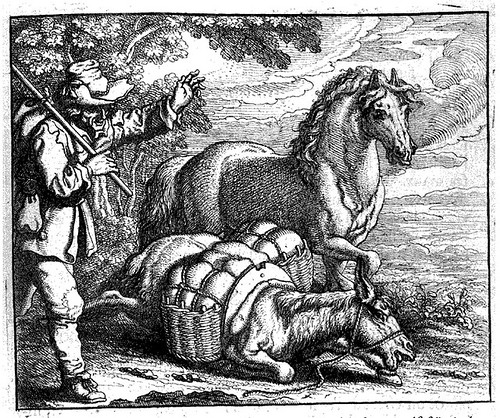HODIE (Roman Calendar): ante diem tertium decimum Kalendas Apriles.
MYTHS and LEGENDS: The art image for today's legend shows Theseus and the Minotaur; you can also see the legends for the current week listed together here.

TODAY'S MOTTOES and PROVERBS:
TINY MOTTOES: Today's tiny motto is: Merui manu (English: I have merited this by my own hand).
3-WORD PROVERBS: Today's 3-word verb-less proverb is Avarus semper pauper (English: A greedy person is always poor)
AUDIO PROVERBS: Today's audio Latin proverb is Sapientis est mutare consilium (English: It is for the wise person to change his mind). To read a brief essay about this proverb and to listen to the audio, visit the Latin Via Proverbs blog.
PUBLILIUS SYRUS: Today's proverb from Publilius Syrus is: Citius venit periclum, cum contemnitur (English: Danger comes more quickly when it is not taken seriously).
ERASMUS' ANIMALS: Today's animal proverb from Erasmus is Psaphonis aves (English: The birds of Psapho; from Adagia 1.2.100 - This refers to a man named Psapho who taught some birds to say "Great is the God Psapho!" and then released them into the wild; when people heard the birds, they started to worship a god named Psapho).
BREVISSIMA: The distich poster for today is Cito Factum, Gratum. Click here for a full-sized view; the poem has a vocabulary list and an English translation, too.

And here is today's proverbial lolcat:

TODAY'S FABLES AND SONGS:
FABULAE FACILES: The fable from the Fabulae Faciles widget is Vulpes et Mulieres, the story of a fox, some women, and roasted chicken (this fable has a vocabulary list).
MILLE FABULAE: The fable from the Mille Fabulae et Una widget is Equus et Asellus Onustus, the story of a selfish horse who refused help to the donkey who was his companion.
GreekLOLz - and Latin and English, too. Below is one of my GreekLOLz; for the individual Greek, Latin and English versions of the graphic, see the blog post: Ἐκ λύκου στόματος. Ex lupi ore abstulisti. Out of the wolf's mouth.

